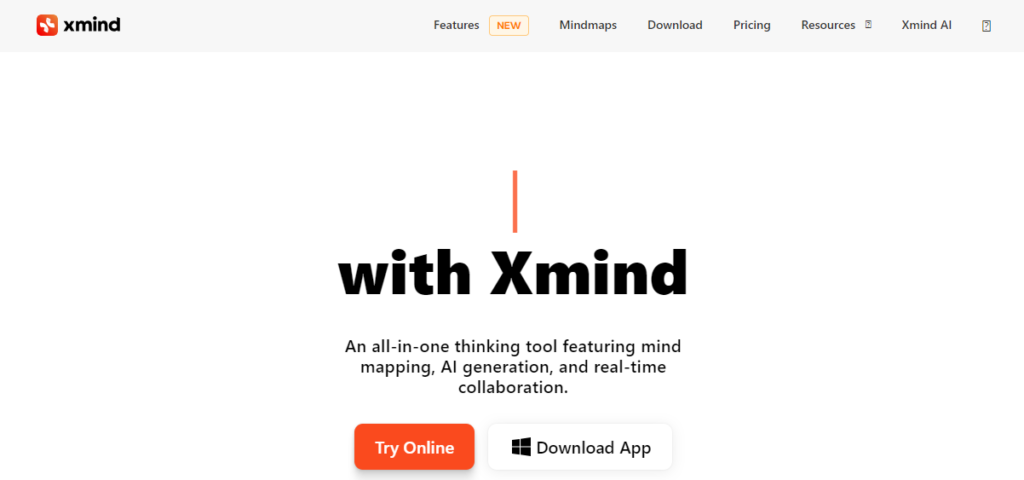
“Mentorship is the key to unlocking the potential within each of us.” – John C. Maxwell.
Creating an online mentorship program for niche industries can be a game-changer for professionals seeking specialized guidance and growth. In today’s digital age, the demand for tailored mentorship is higher than ever. Whether you’re in a unique field like artisanal crafts, specialized tech sectors, or niche healthcare services, an online mentorship program can bridge the gap between aspiring professionals and seasoned experts.
This program not only provides mentees with invaluable insights and personalized advice but also fosters a community of like-minded individuals who can share experiences and support each other. By leveraging digital platforms, you can offer flexible, accessible, and scalable mentorship opportunities that transcend geographical boundaries.
Ready to dive into the world of online mentorship and make a lasting impact in your niche industry? Let’s explore the steps to create a successful program that empowers and inspires!
TL;DR
- Unlock potential: Create a profitable online mentorship program in your niche.
- Targeted expertise: Focus on a specific industry for maximum impact.
- Structured learning: Design a program with clear goals, modules, and support.
- Digital marketing: Attract ideal mentees through effective online strategies.
- Scalable growth: Expand your reach and influence with smart scaling techniques.
- Empower and earn: Make a difference while building a sustainable business.
What is an Online Mentorship Program?
Before we dive into the specifics of creating your program, let’s define what we mean by an “online mentorship program.” It’s a structured learning experience delivered digitally, connecting experienced professionals (mentors) with aspiring individuals (mentees) in a specific niche. Unlike traditional mentorship, which is often limited by geographical proximity and time constraints, online programs offer unparalleled flexibility and accessibility.
Think of it as a curated learning journey, guided by an expert in your chosen field. This journey typically involves a series of modules, assignments, live sessions, and ongoing support, all delivered through online platforms. The goal is to provide mentees with the knowledge, skills, and support they need to achieve their professional goals. The online format allows for a broader reach, impacting more lives and building a sustainable income stream for the mentor.
Step 1: Identifying Your Niche
Before diving in, pinpoint your area of expertise. What unique knowledge or skills do you possess that are highly valuable within a specific industry? Niche industries offer a significant advantage: less competition and a highly engaged target audience. Let’s break down how to find your perfect niche:

- Brainstorm: List your skills and experience. What problems can you solve? Use a mind map or brainstorming tool like MindManager or XMind to visually organize your ideas. For example, if you’re a graphic designer, you might list skills like logo design, branding, website design, and social media graphics. Then, consider the problems these skills solve: helping businesses create a strong visual identity, attracting more customers, and improving their online presence.
- Market Research: Analyze industry trends and demand. Are there unmet needs? Use tools like Google Trends to see search volume for keywords related to your skills. For example, search for “sustainable fashion branding” or “AI-powered marketing for restaurants.” Social listening tools like Brandwatch or Talkwalker can help you understand conversations happening on social media about your potential niche. What are people talking about? What are their pain points?
- Ideal Mentee Profile: Define your target audience. What are their goals, challenges, and aspirations? Create a detailed persona. Consider using tools like MakeMyPersona to help you build a comprehensive profile. Understanding your ideal mentee is crucial for crafting a compelling program. For example, if your niche is “Sustainable Fashion Entrepreneurship,” your ideal mentee might be a small business owner passionate about ethical and eco-friendly practices, struggling with marketing and branding their products. To help you focus your efforts and get ahead of the competition, check out this insightful video on productivity and goal setting: How to Get Ahead of 99% of People (in 1 day). It emphasizes the power of focused action, a crucial element in identifying a profitable niche.
For More Free Videos, Subscribe to the Rhodes Brothers YouTube Channel.
Step 2: Structuring Your Online Mentorship Program
A well-structured program is key to success. Think modules, assignments, live sessions, and community engagement.
- Program Goals: Clearly define what mentees will achieve by the end of the program. For example, “By the end of this program, mentees will be able to launch a successful Etsy shop selling handmade jewelry.”
- Module Breakdown: Divide the program into manageable modules, each focusing on a specific skill or topic. Use project management tools like Trello or Asana to organize your modules and track progress. For example, a module on “Etsy Shop Setup” might cover topics like creating a shop profile, listing products, and setting up payment processing.
- Content Delivery: Use a mix of video lessons (record using Screencast-o-matic or Camtasia), downloadable resources (create PDFs, checklists, and templates using Canva), live Q&A sessions (use Zoom or Google Meet), and group coaching calls (again, using Zoom or Google Meet). Platforms like Teachable, Thinkific, and Kajabi offer excellent tools for creating and delivering online courses.
- Assessment and Feedback: Incorporate quizzes (use Google Forms or Typeform), assignments, and regular feedback sessions to track progress and ensure accountability. Use a grading system or rubric to provide consistent feedback.
Remember to cater to different learning styles. Some mentees thrive with visual learning, while others prefer hands-on activities. A diverse approach ensures maximum engagement.
Step 3: Marketing Your Mentorship Program
Getting the word out is crucial. Utilize a multi-faceted marketing strategy.
- Website: Create a professional website showcasing your expertise and program details. Use website builders like WordPress (with a theme like Astra or OceanWP) or Squarespace for ease of use.
- Social Media: Engage on platforms relevant to your niche. Share valuable content, run contests (use tools like Gleam), and interact with potential mentees. Use scheduling tools like Buffer or Hootsuite to manage your social media presence.
- Content Marketing: Create blog posts, articles, and videos offering free value related to your niche. Use SEO tools like SEMrush or Ahrefs to identify relevant keywords. This establishes you as an authority and attracts potential clients.
- Email Marketing: Build an email list and nurture leads with valuable content and program updates. Use email marketing platforms like Mailchimp or ConvertKit.
- Paid Advertising: Consider using targeted ads on platforms like Facebook, Instagram, and LinkedIn to reach a wider audience. Use Facebook Ads Manager or LinkedIn Campaign Manager to create and manage your ad campaigns.
As Maya Angelou wisely said, “Nothing can dim the light which shines from within.” Let your passion shine through your marketing materials. Authenticity resonates with potential mentees.
Step 4: Pricing Your Mentorship Program
Pricing depends on your experience, the program’s value, and your target market. Consider these options:
- Tiered Pricing: Offer different program levels at varying price points to cater to different budgets and needs.
- Payment Plans: Make your program more accessible by offering payment plans (use platforms like Stripe or PayPal).
- Value-Based Pricing: Focus on the transformation your mentees will experience rather than just the hours of your time.
Remember, your price should reflect the value you provide. A well-structured, high-quality program justifies a higher price point.
Step 5: Scaling Your Mentorship Program
Once your program gains traction, consider scaling strategies:
- Group Coaching: Transition from one-on-one mentorship to group coaching to reach more mentees.
- Hiring Assistants: Delegate tasks to free up your time for core activities (use platforms like Upwork or Fiverr to find virtual assistants).
- Creating Digital Products: Develop complementary digital products like ebooks, workbooks, or templates to enhance your program and generate additional revenue.
- Affiliate Marketing: Partner with other businesses in your niche to promote your program.
Step 6: Leveraging Technology
Technology plays a vital role in creating and managing your online mentorship program. Here are some tools to consider:
- Learning Management Systems (LMS): Teachable, Thinkific, Kajabi, Podia
- Video Conferencing: Zoom, Google Meet, Skype
- Project Management: Asana, Trello, Monday.com
- Communication: Slack, Discord
- Email Marketing: Mailchimp, ConvertKit
- Payment Processing: Stripe, PayPal
- Social Media Management: Buffer, Hootsuite
- SEO Tools: SEMrush, Ahrefs
- Graphic Design: Canva
- Video Editing: Screencast-o-matic, Camtasia
- Form Creation: Google Forms, Typeform
- Virtual Assistant Platforms: Upwork, Fiverr
- Contest Management: Gleam
This detailed guide provides a strong foundation for creating a successful online mentorship program in your niche industry. Remember, consistency, adaptability, and a genuine desire to help your mentees succeed are key ingredients for long-term success.
Actionable Steps for Creating an Online Mentorship Program in Niche Industries
Step 1: Niche Selection & Market Validation (Week 1):
- Beginner: Brainstorm your skills. Research 3-5 potential niches using Google Trends. Ask friends/family for feedback on your niche ideas.
- Intermediate: Conduct thorough keyword research (using tools like Ahrefs or SEMrush) for your top niche choices. Analyze competitor offerings. Create a basic ideal mentee persona.
- Advanced: Perform in-depth competitive analysis, including pricing, marketing strategies, and audience engagement. Develop detailed ideal mentee personas, including demographics, psychographics, and pain points. Validate your niche idea through surveys or interviews with potential mentees.
Step 2: Program Structure & Content Creation (Weeks 2-3):
- Beginner: Outline 3-5 core modules for your program. Create basic lesson plans for each module. Focus on simple, easy-to-understand content.
- Intermediate: Develop detailed lesson plans for each module, including learning objectives, activities, and assessments. Create a variety of content formats (video, text, downloadable resources).
- Advanced: Design a comprehensive curriculum with clear learning outcomes, incorporating diverse learning styles and assessment methods. Develop high-quality video lessons, engaging written materials, and interactive exercises. Consider incorporating gamification elements to enhance engagement.
Step 3: Technology Setup & Platform Selection (Week 4):
- Beginner: Choose a simple LMS (like Teachable) and video conferencing tool (like Zoom). Focus on ease of use and basic functionality.
- Intermediate: Research and compare different LMS platforms, considering features like marketing tools, payment integrations, and community features. Set up your chosen platforms and test their functionality.
- Advanced: Integrate multiple tools for a seamless learning experience. Customize your LMS with branding and advanced features. Set up automated email sequences for onboarding and engagement.
Step 4: Marketing & Sales Strategy (Weeks 5-6):
- Beginner: Create basic social media profiles and share information about your program. Offer a free introductory webinar or consultation.
- Intermediate: Develop a comprehensive marketing plan, including content marketing, social media engagement, and email marketing. Run targeted ads on relevant platforms.
- Advanced: Implement a multi-channel marketing strategy, leveraging SEO, paid advertising, influencer marketing, and affiliate partnerships. Track key metrics and optimize your campaigns based on data.
Step 5: Program Launch & Initial Feedback (Week 7):
- Beginner: Launch your program with a small group of beta testers. Gather feedback and make adjustments as needed.
- Intermediate: Launch your program with a clear marketing campaign. Actively solicit feedback from participants and use it to improve the program.
- Advanced: Implement a phased launch, starting with a small group and gradually scaling up based on demand and feedback. Use sophisticated analytics to track program performance and student engagement.
Step 6: Program Refinement & Scaling (Weeks 9 onwards):
- Beginner: Focus on improving the program based on initial feedback. Consider adding new modules or content as needed.
- Intermediate: Implement strategies to increase student enrollment, such as offering discounts or creating affiliate partnerships. Explore opportunities to expand your program’s reach.
- Advanced: Develop a comprehensive scaling strategy, including hiring virtual assistants, creating additional digital products, and exploring partnerships with other organizations. Continuously refine your program based on data and feedback.
Common Mistakes & Direct Solutions for Online Mentorship Programs
1. Unclear Niche
- Problem: Too broad, can’t target marketing effectively.
- Solution: Use keyword research tools (Ahrefs, SEMrush) to find a specific niche. Create detailed ideal mentee personas. Analyze competitors. Test different niche angles with small marketing campaigns.
2. Poor Program Structure
- Problem: Disorganized, confusing, low completion rates.
- Solution: Develop a clear curriculum with learning objectives and assessments. Use project management tools (Trello, Asana). Vary content formats (video, text, interactive exercises). Get beta tester feedback.
3. Marketing Neglect
- Problem: Great program, no one knows about it.
- Solution: Create a marketing plan (social media, email, content, paid ads). Make high-quality content. Track results and adjust accordingly.
4. Underpricing
- Problem: Undervalues expertise, financial instability.
- Solution: Research competitor pricing. Calculate your costs. Focus on the value you provide (transformation, ROI). Offer tiered pricing.
5. Lack of Accountability
- Problem: Mentees lose motivation, low completion rates.
- Solution: Set clear expectations. Regular check-ins. Assessments and feedback. Build a supportive community. Offer personalized support.
Frequently Asked Questions
How do I find my niche?
Start by listing your skills and experience. Then, research industry trends and identify unmet needs. Look for areas where you can provide unique value.
How do I structure my program?
Define clear goals, break the program into manageable modules, and choose a mix of content delivery methods (video, downloadable resources, live sessions).
How much should I charge?
Consider your experience, the program’s value, and your target market. Tiered pricing and payment plans can make your program more accessible.
How do I market my program?
Use a multi-faceted approach: website, social media, content marketing, email marketing, and paid advertising.
How do I scale my program?
Consider group coaching, hiring assistants, creating digital products, and affiliate marketing.
What if I don’t have a large following?
Start with a small, targeted audience. Focus on providing exceptional value and building strong relationships. Word-of-mouth marketing is powerful.
How do I handle difficult mentees?
Set clear expectations upfront. Have a process for addressing issues and providing support. Consider having a contract outlining expectations and responsibilities.
What if my program isn’t successful right away?
Don’t give up! Analyze your results, adapt your strategy, and keep learning. Success takes time and effort.
How can I ensure the quality of my program?
Continuously seek feedback from your mentees. Refine your content and delivery methods based on their input.
What legal considerations should I be aware of?
Consult with a legal professional to ensure your program complies with all relevant regulations and laws regarding online education and business.
Ready to Launch Your Mentorship Empire?
Creating a successful online mentorship program in a niche industry is within your reach. Remember these key takeaways:
- Niche Down: Focus your expertise on a specific area for targeted marketing and impact.
- Structure for Success: A well-organized program with clear goals, modules, and assessments is crucial.
- Market Your Expertise: Utilize a multi-faceted marketing strategy to reach your ideal mentees.
- Price for Value: Charge what you’re worth, reflecting the transformation you offer.
- Scale Strategically: Plan for growth by considering group coaching, digital products, and partnerships.
- Your First Step: Identify your niche and create a simple outline of your program’s core modules. This initial planning will give you the momentum you need to move forward.
Thank you for joining us today! We hope this guide empowers you to create a thriving online mentorship program. For more valuable insights and strategies to help you succeed, check out and subscribe to the Rhodes Brothers YouTube Channel for the latest videos and information.
Resource List
Books
- “The E-Myth Revisited: Why Most Small Businesses Don’t Work and What to Do About It” by Michael E. Gerber: Focuses on building a sustainable business model, crucial for long-term success.
- “Building a StoryBrand: Clarify Your Message So Customers Will Listen” by Donald Miller: Helps you craft compelling marketing messages that resonate with your target audience.
- “Platform: Get Noticed in a Noisy World” by Michael Hyatt: Provides strategies for building your online presence and attracting clients.
- “Permission Marketing: Turning Strangers into Friends, and Friends into Customers” by Seth Godin: Explores the importance of building relationships with your audience through valuable content.
- “Jab, Jab, Jab, Right Hook: How to Tell Your Story in a Noisy Social World” by Gary Vaynerchuk: Offers a social media marketing strategy focused on providing value before promoting your services.
Courses & Training Programs
- Teachable Academy: Offers courses on creating and marketing online courses.
- Thinkific Academy: Provides resources and training on building and selling online courses.
- Skillshare: Offers a wide variety of courses on marketing, business, and online education.
- Udemy: Another platform with numerous courses related to online business and marketing.
- Coursera: Offers university-level courses on business strategy and marketing.
Podcasts
- The Smart Passive Income Podcast: Focuses on building profitable online businesses.
- Marketing School: Offers daily marketing tips and insights.
- Entrepreneurs on Fire: Features interviews with successful entrepreneurs.
- The GaryVee Audio Experience: Provides marketing and business advice from Gary Vaynerchuk.
- How I Built This: Shares the stories of successful entrepreneurs.
Tools & Software
- Learning Management Systems (LMS): Teachable, Thinkific, Kajabi, Podia, LearnWorlds
- Video Conferencing: Zoom, Google Meet, Skype
- Email Marketing: Mailchimp, ConvertKit, ActiveCampaign
- Social Media Management: Buffer, Hootsuite, Later
- Website Builders: WordPress, Squarespace, Wix
- Project Management: Asana, Trello, Monday.com
- Graphic Design: Canva, Adobe Creative Suite
- Video Editing: Camtasia, DaVinci Resolve, Filmora
- Analytics: Google Analytics, Facebook Insights
Blogs & Websites
- Neil Patel: Offers marketing advice and resources.
- HubSpot: Provides inbound marketing resources and tools.
- Copyblogger: Focuses on content marketing and copywriting.
- MarketingProfs: Offers marketing education and resources.
- Entrepreneur.com: Provides business advice and resources.
Creating an Online Mentorship Program Cheat Sheet
- Define your niche: Keyword research, competitor analysis, ideal mentee persona.
- Structure your program: Modules, learning objectives, assessments, diverse content formats.
- Market your program: Website, social media, content marketing, email marketing, paid ads.
- Price strategically: Value-based pricing, tiered pricing, payment plans.
- Scale effectively: Group coaching, digital products, affiliate marketing, virtual assistants.
- Use technology: LMS, video conferencing, project management, email marketing tools.
- Avoid common mistakes: Clear niche, strong structure, consistent marketing, fair pricing, accountability.
- Gather feedback: Beta testing, surveys, ongoing communication with mentees.
- Adapt and refine: Continuously improve your program based on feedback and data.
- Build a community: Foster interaction and support among your mentees.
- Provide value: Focus on transforming your mentees’ lives.
- Be consistent: Regular content, communication, and engagement.
- Track your progress: Monitor key metrics (enrollment, completion rates, feedback).
- Legal considerations: Contracts, terms of service, privacy policy.
- Financial planning: Pricing, expenses, profit margins.
- Customer service: Respond promptly to inquiries and address concerns.
- Ongoing learning: Stay updated on industry trends and best practices.






